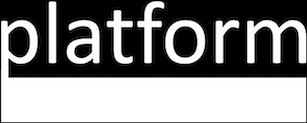Facebook/Meta released earnings yesterday with the "metaverse" topic getting overshadowed by the focus on the "year of efficiency". CFO said the 11k job cuts are just the beginning. Wall Street loved it and the stock is up 20%.
Interesting case study in unit economics for Facebook:
- CAC: near zero, as the channel was viral with k-factor of over 1.1. They grew exponentially fast with it, and acquired other social nets growing exponentially fast too, but now they have all 3B humans with a smartphone as users, so the "virus" has run its course
- Rev per user: they capture lots of hours of attention and sell ads against it, generating $3 per user per month, $4/mo during q4 with increased Christmas advertising. They haven't figured out any new products that can double the amount of time people spend to double their ad impressions (good news for our kids mental health). Nor tech to double the effectiveness of each ad impression (good news for our wallets). So with flat users and flat revenue per user, overall revenue growth is flat.
Despite their products not seeming to have changed much from 5 years ago, they manage to spend 85% of their revenue on cogs/opex/taxes, similar to Twitter before Elon reduced headcount by 2/3rds. So they are effectively flat revenue growth and 15% net income, which would imply at most a fair value of around 1-1.5x sales. Wall Street hopes the "year of efficiency" brings that % net income much higher. With today's stock jump, they are valued at 4x sales. So implies they need to figure out how to grow 10% with 40% net income. Or get revenue growth to 30% at current levels of net income. The former seems more likely.
Their big opex bet to drive more rev/user is on the metaverse. Do you think it is going to double the time 3B people spend on facebook/instagram/whatsapp? They are spending a whopping 15% of revenue right now on that, with a new business model competing with Apple in hardware, generating $1 in revenue for every $5 in opex. They admitted on the earnings call that folks will experience ar/vr on their smartphone first, and highlighted that 100m whatsapp users created animated avatars in the 3 months since launch. That is pretty far from all of us spending all day buried in new facebook vr headsets, rather than being glued to the smartphones we already own.
I suspect Apple will be the company that launches the AR glasses that everyone buys, and they will be pretty simple at first: rendering our iphone screen into our field of view all day in AR so we don't even have to look down at our phone, and piping the audio into embedded airpods on the stems. Then someone will come up with an app that we all can't live without, probably a speech to text app that feeds everything we hear into chatgpt (of course) which constantly talks back to us to "augment?" our day. Facebook then will both clone it and try to buy it. 8-)
Until Apple has this must-have ar/vr hardware shipping that we get for free with our att/verizon contracts, suspect Facebook is probably best figuring out how to cut costs to maximize their net income, and using the 40% net income for stock buybacks. Could cut costs with a smaller team (smaller teams tend to out-innovate oversized teams so it might be a double win) or by spreading their workforce around the US and the world the way startups are (startups are seeing the same output per worker at up to 2/3rds less opex/head in this new global remote-first operating model).
So founders as you think about how this is relevant for your business:
- CAC: Is viral a channel you can leverage for your business, and if so, are you maximizing k-factor by making it easy for current users to share?
- Rev/User: Are you measuring the hard value you deliver per user and trying to grow it, so when you charge 10% of that value, your rev/user is big and getting bigger?
- Opex: Are you using remote first as a strategic advantage to have A+ talent on your team, operating from geographies that don't require huge salaries for your team to live comfortably? If so, you can run breakeven faster while growing a big product team and doubling or tripling quota capacity annually. Then you don't have to dilute your team's equity by 20% every 18 months to keep the lights on, making it ever easier to recruit the best talent to your mission.

This is really good and wondering your thoughts on strategies to lower CAC without jeorpadizing growth targets for early-stage SaaS startups; are there any other approaches besides community building that work well?
Founder, MD @ PivotNorth Capital
it is the $1B question! for b2c consumer products companies, big shift to try to sell through retail. and using influencers where @Peggy O'Flaherty is an expert. on digital/subscription services, viral is ideal if your product/service has natural network effects where the service is better if your friends are on too. and influencers again. and lately seeing creative SEO strategies using structured data lists generated from chatgpt to seed a content library that gets picked up by google.
@ Yigdoo
Thx Tim, great tips!
Founder + CEO @ Flyte
really well said! Just surprised Facebook has not been focussed on increasing margins sooner with that being such a big point of leverage and where larger teams won't necessarily be driving incremental innovation!